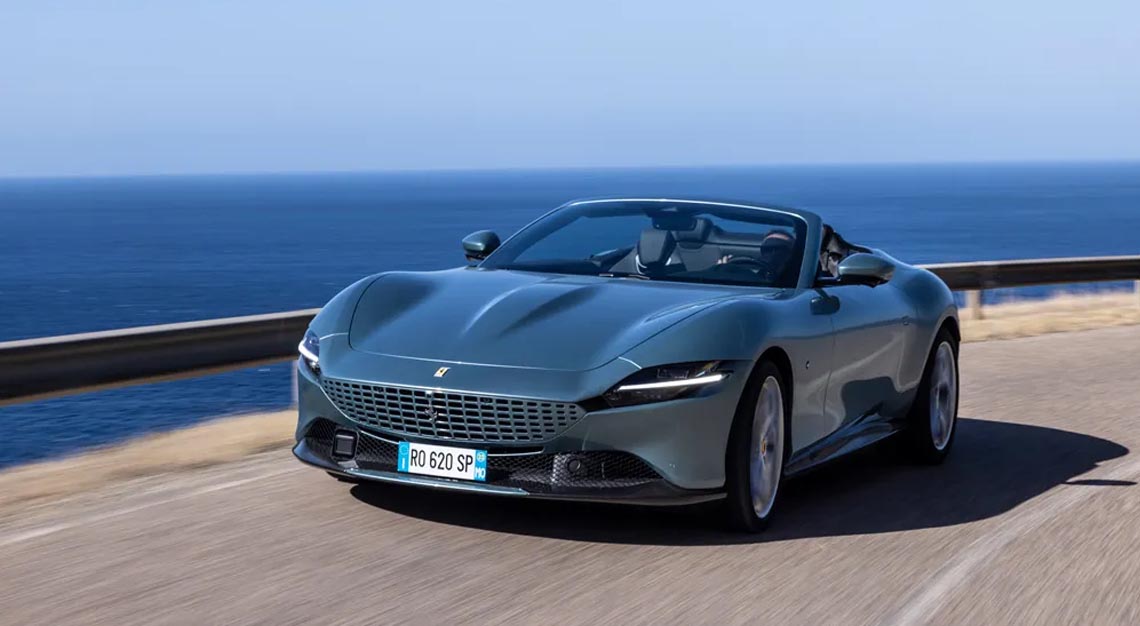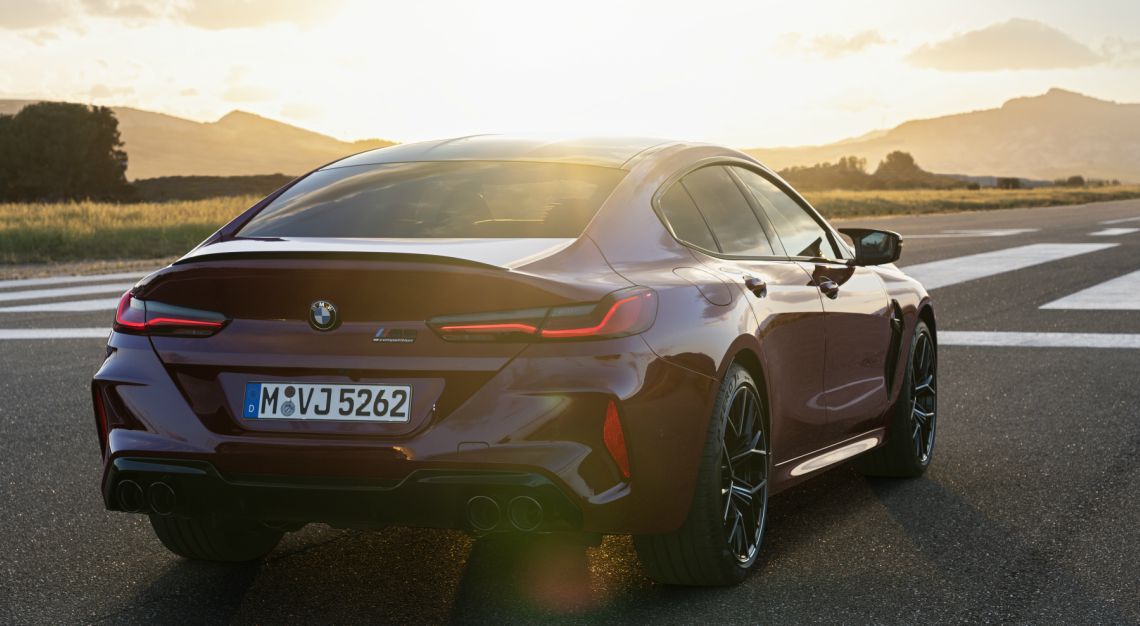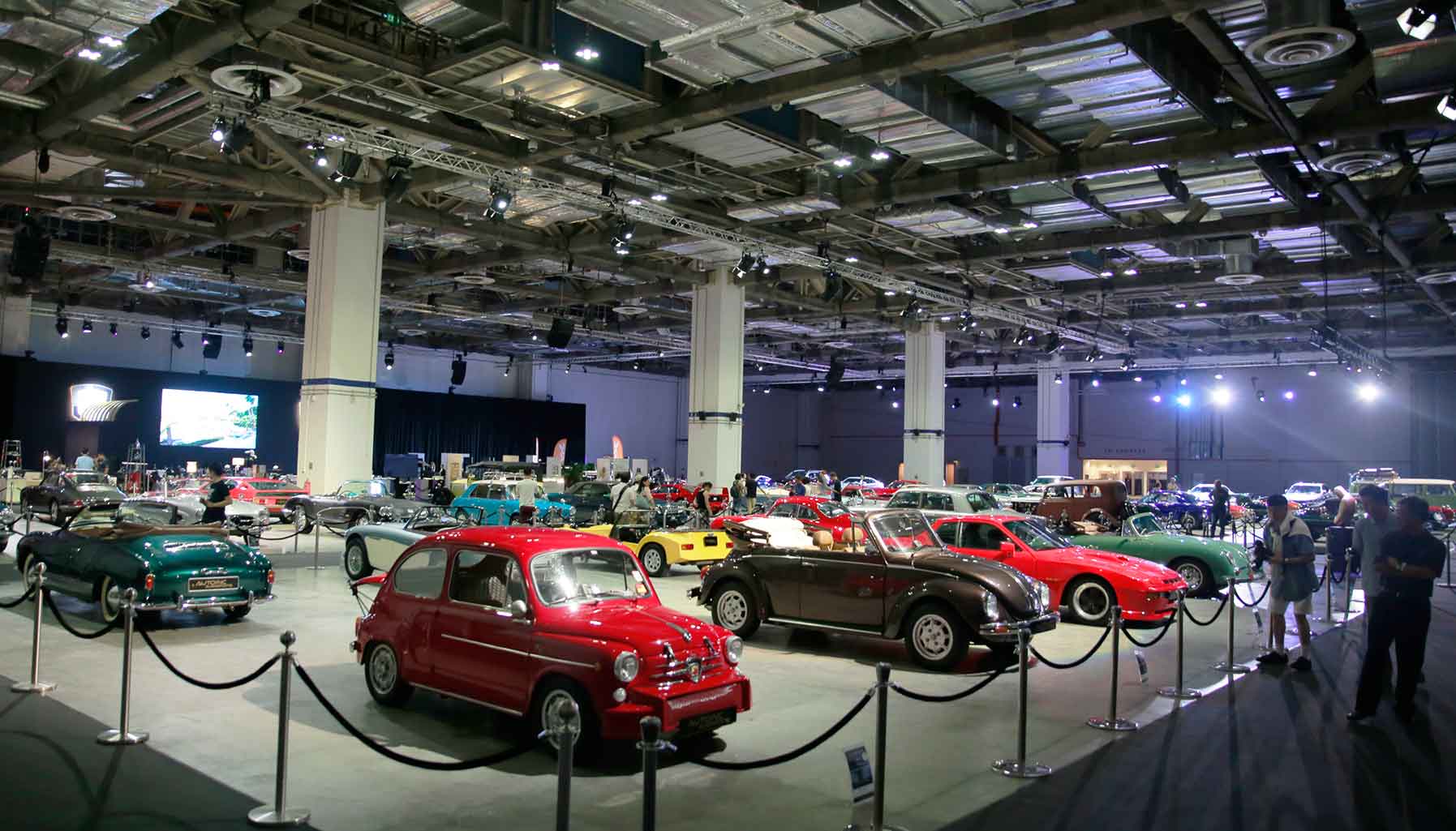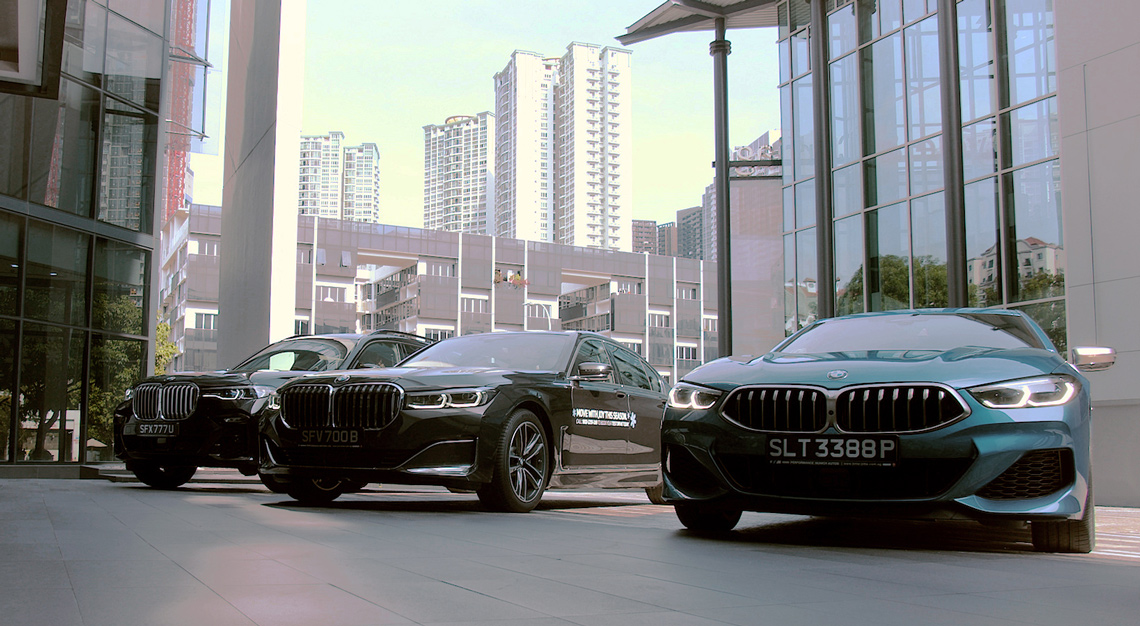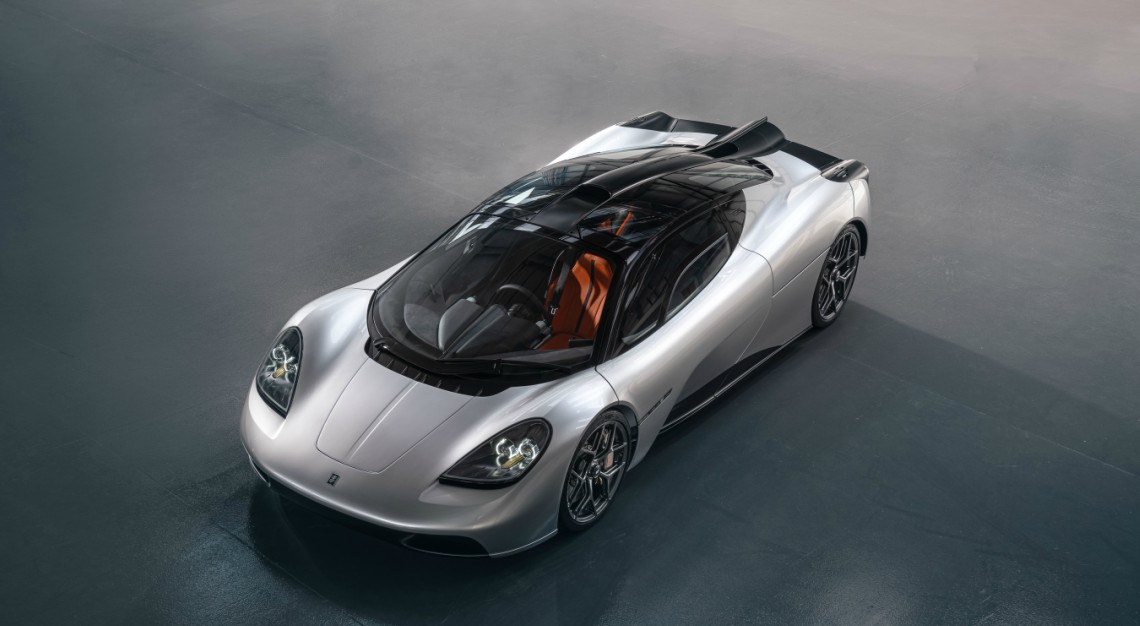Piloting the 612 hp convertible in Sardinia revealed improvements over the coupe, aside from the obviously more immersive drive experience.
The new roof-optional variant of the Ferrari Roma, a sports car inspired by Italy’s capital and built in Maranello, didn’t have to go far for its thematically on-point dynamic premiere. The island of Sardinia is just a quick hop from the country’s mainland, but exudes extremes of cosmopolitan flair and untamed nature that seem perfectly in tune with Ferrari’s surprisingly high-performance Roma Spider.
With its la nuova dolce vita tagline, the coupe marked a sea change in the automaker’s design language, led by an embrace of sensuality at the hand of Ferrari’s head of design, Flavio Manzoni. Elegantly transforming a hardtop into convertible form is no easy task, especially when the subject is as platonically ideal as the Roma coupe. The Spider also marks a notable milestone in Ferrari history as being the first front-engine, soft-top convertible since the Daytona version, which ended production half a century ago.
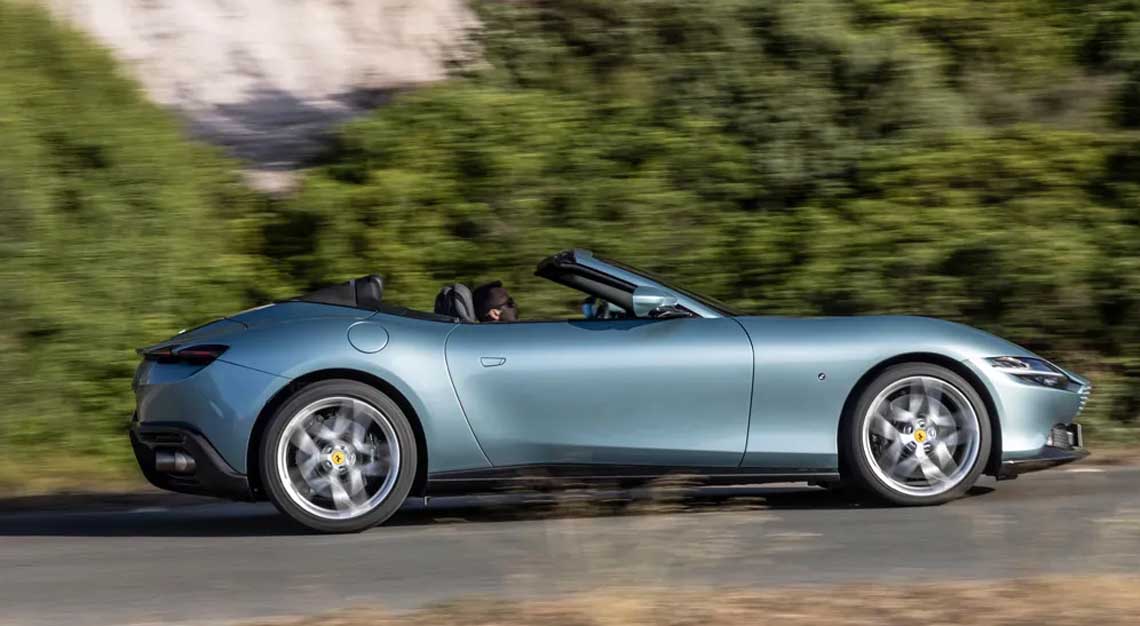
As such, the Roma retains its delightfully zoomy snout, which flaunts a compelling combination of complex curves and attitudinal lilts. The expansive dash-to-axle distance continues the theme, attenuating with a lengthy door and a rather compact rear section. Resolving the folding soft-top mechanism with the tail section must have been a bit of a challenge because the coupe’s C-pillar meets a confluence of design elements, among them the curvature of the rear haunches, the flush mounting of the rear window, and the relatively short overhang of the tail.
The convertible’s back end appears to have a lot going on visually, especially when the five-layer fabric top is folded down. The merging of all those shapes can look odd from certain angles, challenging the simple gracefulness of the nose with markedly more provocative features which integrate with the active spoiler.
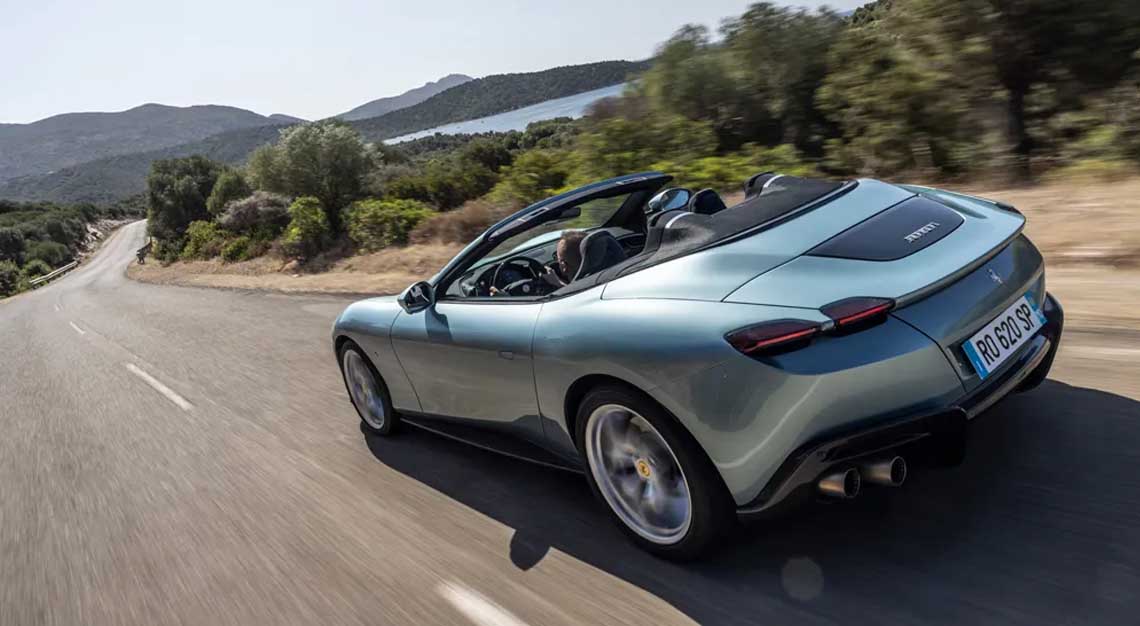
At least from the driver’s seat, there’s a reassuringly familiar sight for enthusiasts of the marque: front and centre is a convincing digital representation of a massive tachometer, accentuated by a 7,500 rpm redline. The steering wheel has been appropriated from the Purosangue, an upgrade from the coupe’s wheel as it’s less prone to accidental activation of its haptic sensors. One Ferrari engineer revealed that drivers experience half as many interactions with the new wheel; we say the update couldn’t have come soon enough.
The top folds down in 13.5 seconds, and is operational at speeds of up to 60 km/h, opening the richly detailed interior to the sun and stars. Body reinforcements and the addition of elements like a roll bar—which automatically pops up in the unlikely event of impending rollovers—add a total of 84 kilograms to the Roma Spider. But the power-to-weight ratio is a strong counterargument to the slightly increased mass, thanks to the 612 hp, 3.9-litre twin-turbocharged V-8 with 68 Nm of torque.
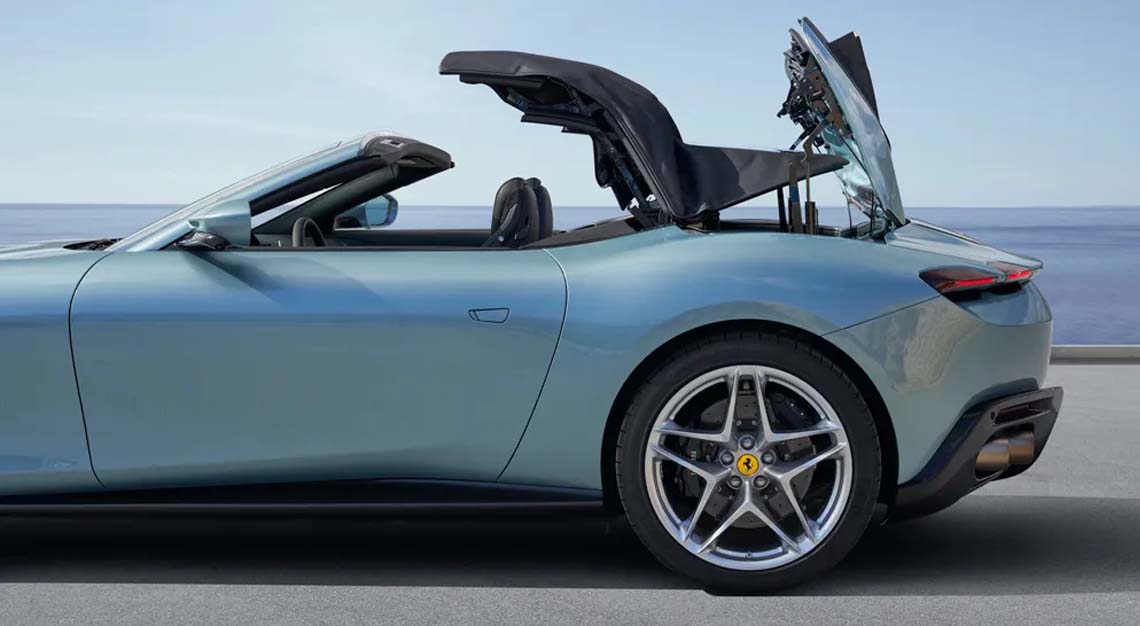
The power plant makes the car feel effortlessly quick, especially since 80 percent of its torque comes on at a scant 1,900 rpm. The eight-speed dual-clutch automatic is positioned at the rear axle for balance, and works harmoniously with the engine in Comfort mode (adjusted by the steering wheel–mounted manettino dial), though shifts can get abrupt in more aggressive settings. The transmission tends to shift early, and overriding the automatic strategy by tapping the large paddles yields quick upshifts, though the transmission will not automatically shift at redline unless Wet mode is selected. Keep an eye on those nifty steering wheel–mounted shift lights and tap accordingly; your sprightliness depends on it.
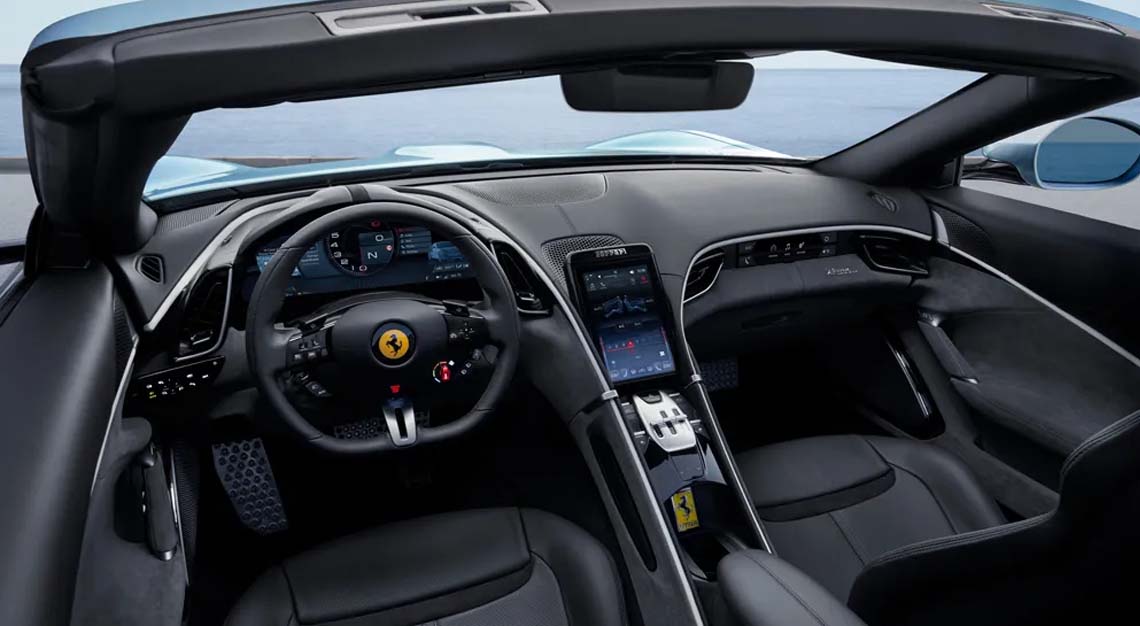
Get in the zone, and the V-8 kicks in with remarkable punch, especially considering the Roma Spider appears a tad too elegant and polite for such heady thrust. While it takes a bit of eye-hand coordination to optimise aggressive gearshifts, we found that the suspension does a fantastic job of balancing between a compliant ride and enough grip and composure to confidently handle tight curves. There’s a delightfully sharp response to the steering, yet a manageable, stable feeling to how the chassis comports itself when cornering. While the engine’s bass exhaust note feels substantive as it rises through the rev range, it’s also subtle enough to convey a whisper of turbocharger whine when the fabric roof is down.
The convertible top is available with a metallic weave that lends it an almost three-dimensional texture, which Ferrari designers liken to an “optical . . . sartorial” effect. The roof delivers good amounts of sound insulation when activated. Fold it down, however, and a bit of wind noise enters the cabin until the windscreen is engaged with the touch of a button. The latter triggers a large, flat flap to raise over the rear seats. It’s a nicely finished piece trimmed in leather, though the large latch at the bottom detracts from its otherwise simple form.
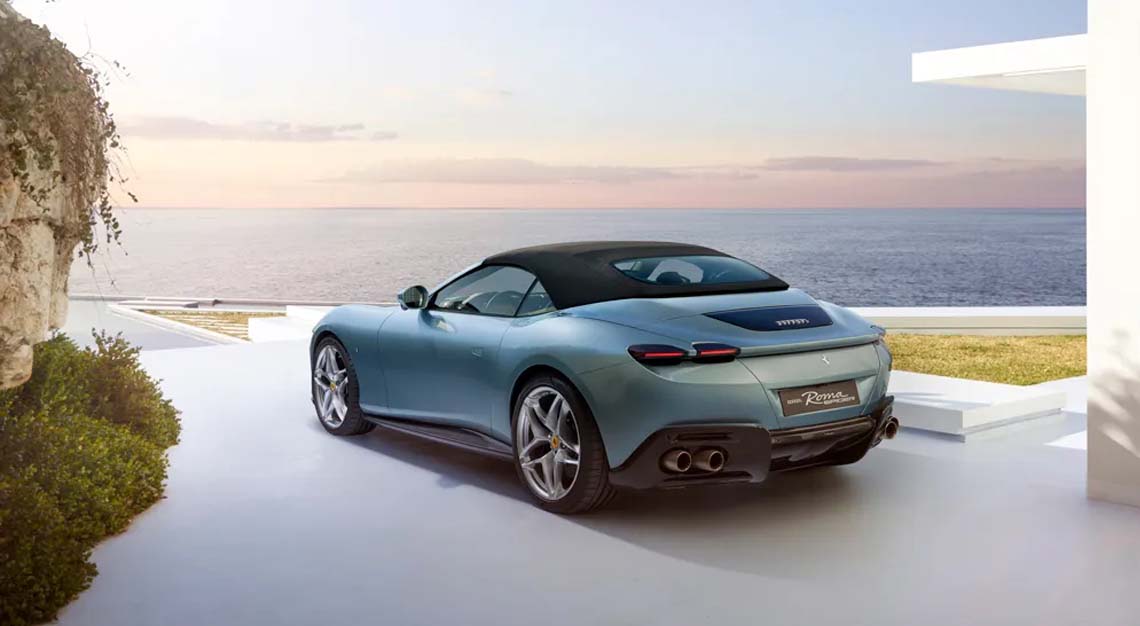
Those wondering why a wind deflector would interfere with rear seats needn’t worry, as Ferrari dubs this a 2+ (not a 2+2) for a reason—the rear seats are merely ceremonial, with far too little legroom for normal-sized adults. Once in place, the deflector enables a noticeable reduction in turbulence, though stowing it requires a bit of an awkward reach from the front seats to push it back into place.
Along the sinuous coastal roads of Sardinia, the Roma Spider manages to make the driver feel not only interconnected with the machine and the road, but with the entirety of these stunning surroundings—motoring’s definition of la dolce vita.
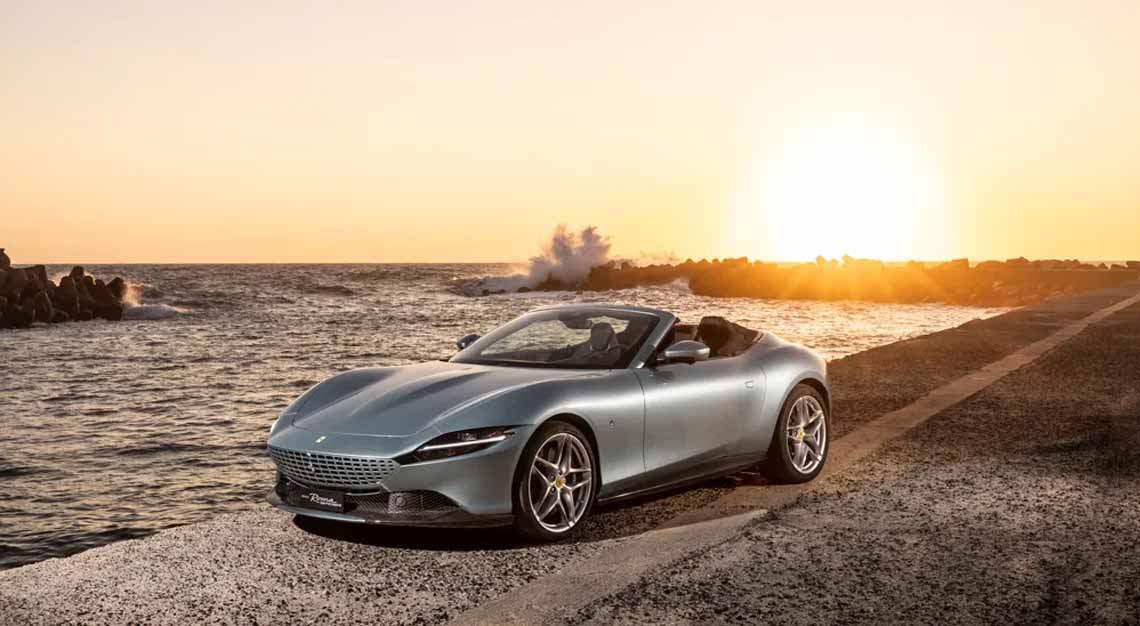
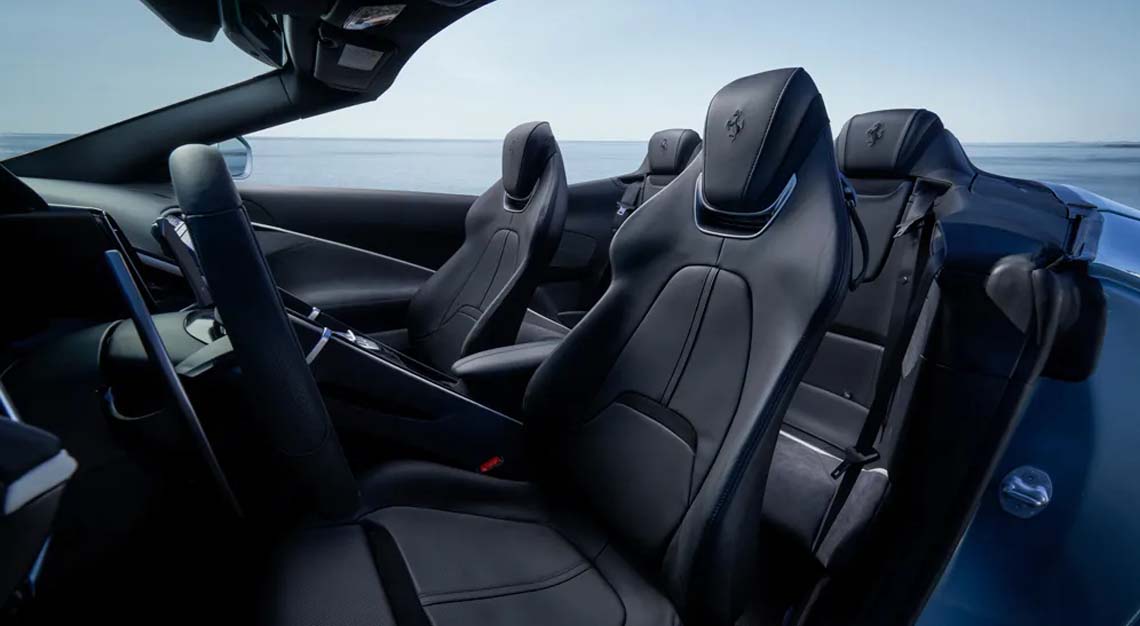
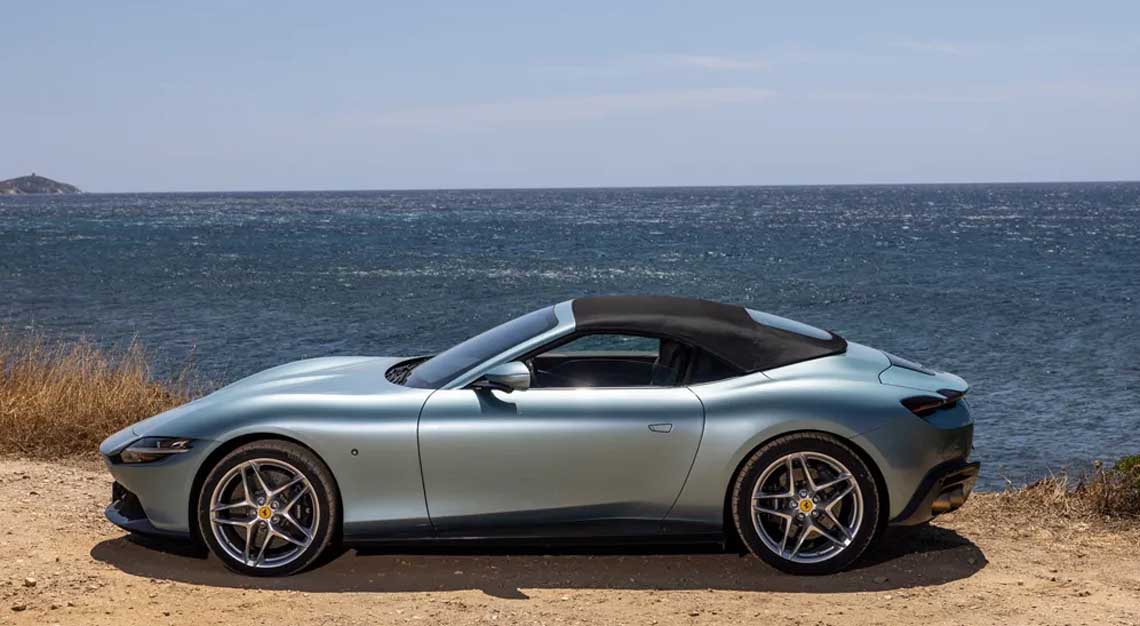
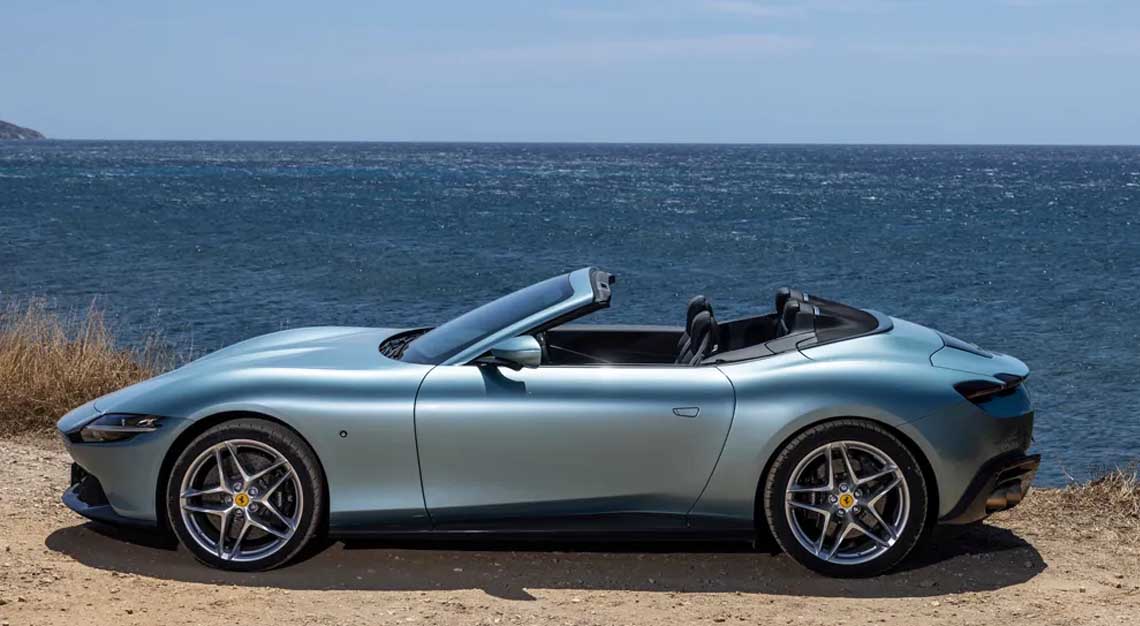
This story was first published on Robb Report USA
